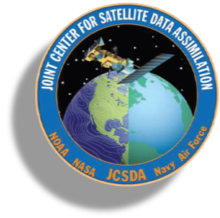The new interpolator hasn’t just made the code slightly more efficient - it has quadrupled the run speed for a 3DVar experiment with GSI static B.
From Space to Forecast: Harnessing TEMPO’s Hourly Observations with JEDI for Next-Gen Air Quality Monitoring and Prediction
Space Weather, New Observation Operators, and the DRAS Project Highlight a Remarkable Year for JCSDA
Bipartisan Support for Funding of JCSDA and JEDI as Critical to National Weather System
A bipartisan Dear Colleague Letter with 24 signatures has been sent to the Speaker, Minority Leader, and Appropriations Committee Chair and Ranking Member of the House of Representatives requesting funding for weather prediction innovation in any disaster supplemental or upcoming appropriations bills for science and technology, specifically highlighting the importance of JCSDA and JEDI to the next generation of forecast models.
Code Sprint Standardizes Variable Names Across JEDI
Last month the JCSDA held a code sprint to begin standardizing variable names across JEDI, updating the generic code to match naming standards also adopted by the Common Community Physics Package (CCPP). This ensures that the JEDI data assimilation remains model agnostic, eliminates unnecessary code duplication, and ensures consistency across all JEDI model interfaces.
Meet the Team: Dr. Travis Sluka, SOCA Project Lead
Using JEDI for Snow Depth Variational DA
With recent advances, JEDI can now perform variational (2DVar) data assimilation for snow depth analysis. The flexibility of JEDI and the generic implementations of data assimilation algorithms (in OOPS) and background error covariances (in SABER, System Agnostic Background Error Representation) enabled a rapid development of this system for snow depth analysis.
JCSDA Closes out DRAS Project with Enormous Success
In 2019 JCSDA was awarded a Disaster Relief Appropriations Supplemental (DRAS) grant from NOAA to accelerate JEDI development and integration, with an emphasis on connecting that development to operational use and systems. The main goals were to accelerate towards use in operational NWS production suites, improving R2O and O2R, and advancing tools for use of observations, all of which were accomplished.
NOAA AOML’s Dr. Pubali Mukherjee Visits JCSDA for Ocean Data Assimilation Collaboration
MPAS 3D-Var Experiments Added to Skylab Demonstrate Model-Agnostic Capabilities
Adding MPAS experiments to Skylab not only expands Skylab’s functionality, it also allows the team to check that Skylab is being built to be model-agnostic as intended; JEDI and Skylab are both designed to work with all weather models, requiring only a small amount of model-specific code to interface with each while the vast majority of Skylab and JEDI components are generic and remain the same from model to mod











